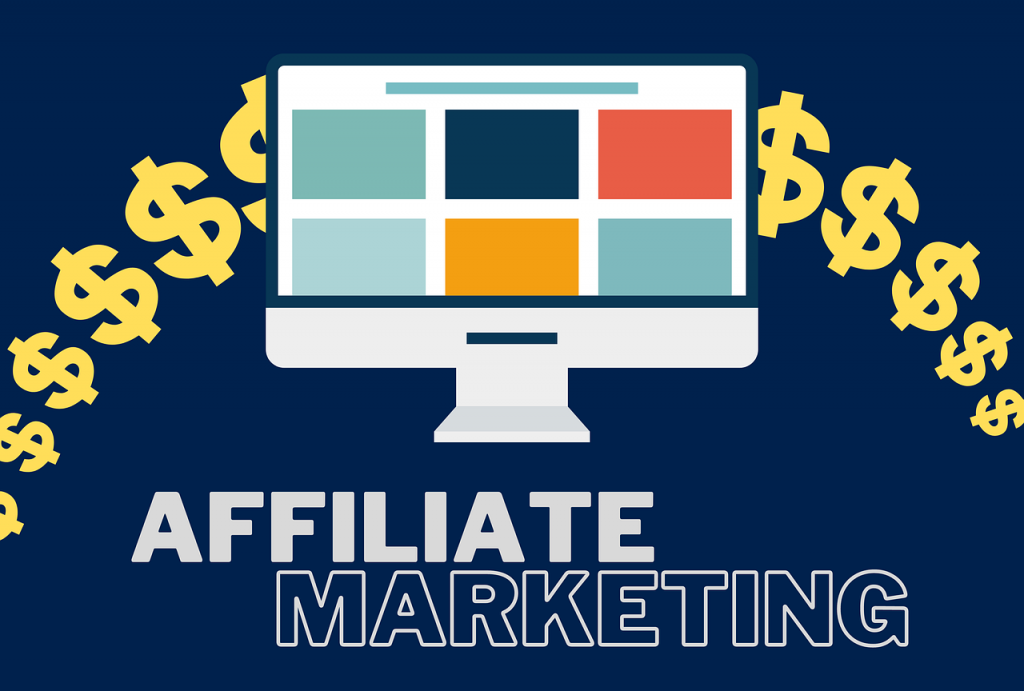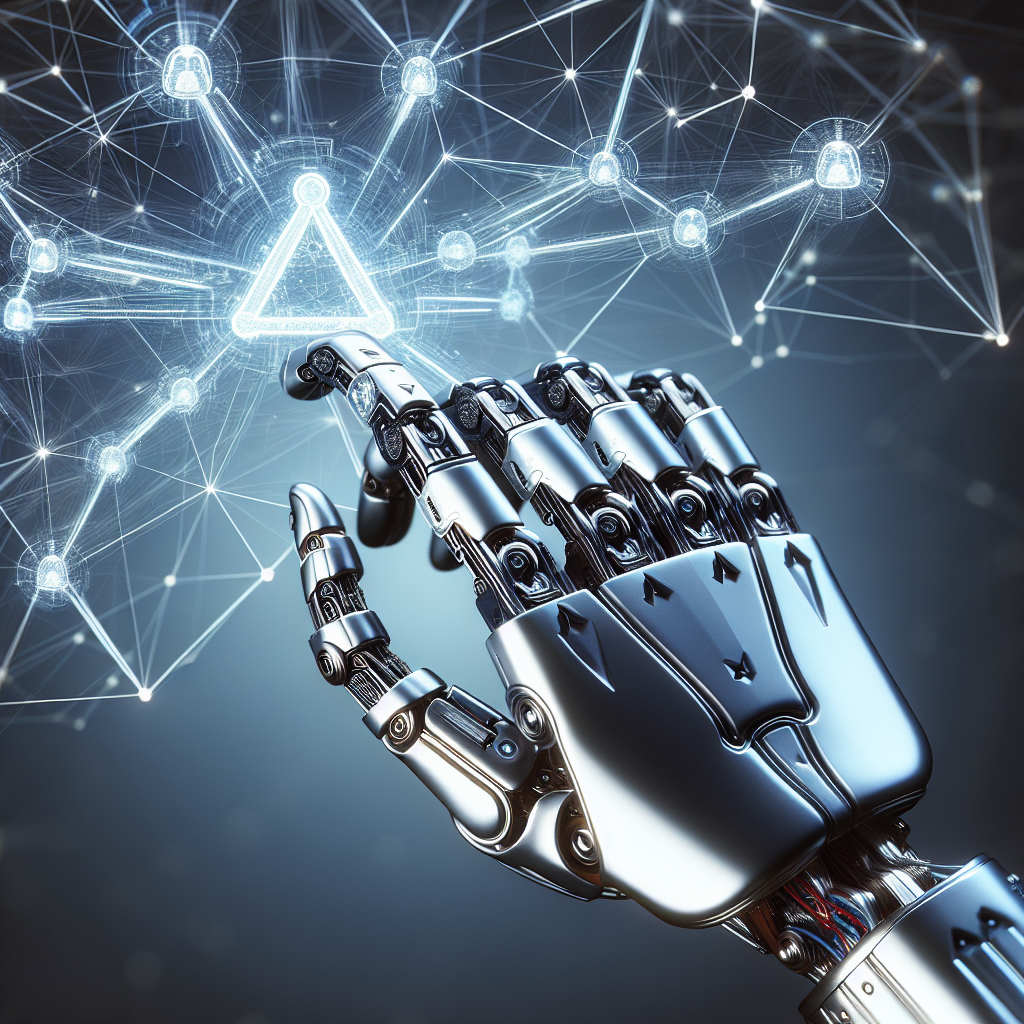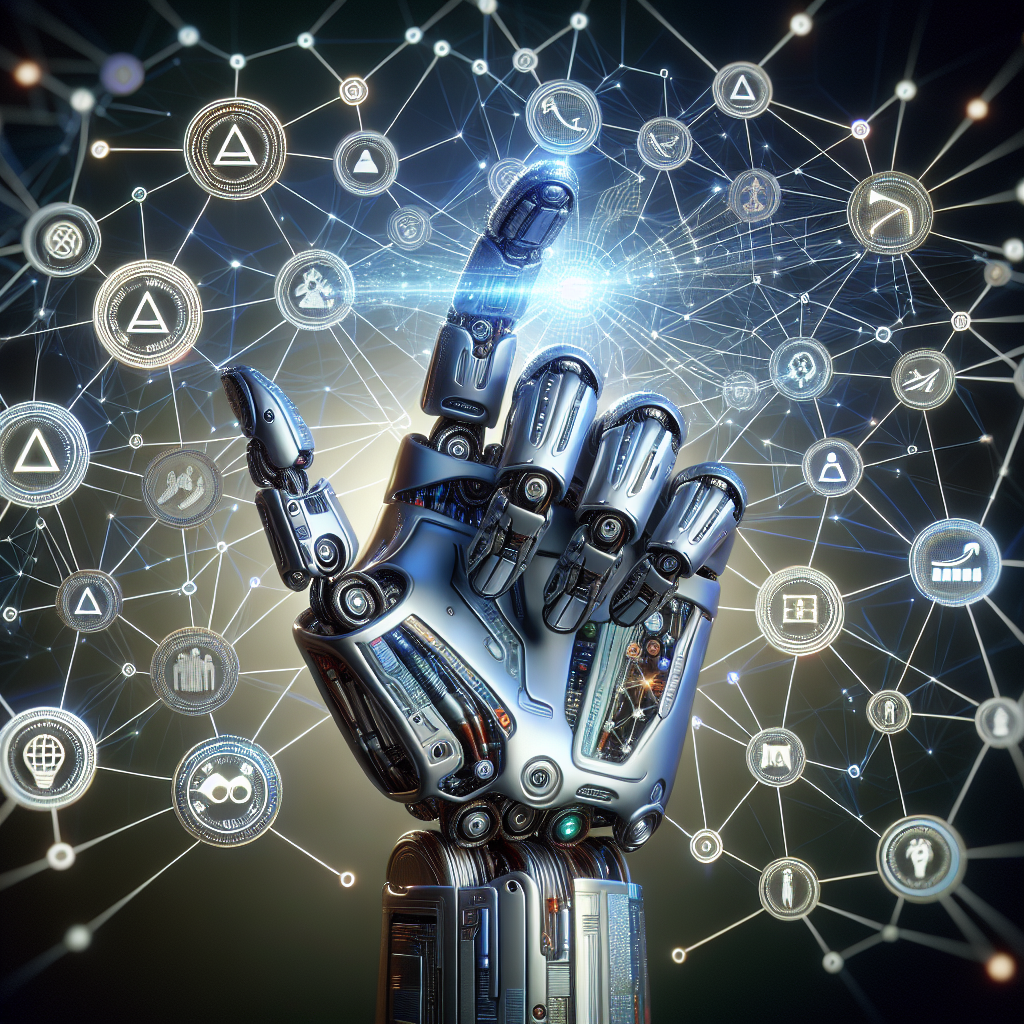Imagine a world where every advertisement you see is perfectly tailored to your interests, preferences, and needs. No more irrelevant ads cluttering your screen or wasting your time. Thanks to the rise of artificial intelligence (AI), this dream is becoming a reality in the realm of affiliate marketing. AI-driven strategies are revolutionizing the way businesses promote their products and services, allowing them to hyper-target their audience and deliver personalized messages that resonate. In this article, we will explore the exciting future of affiliate marketing and how AI is reshaping the industry to create more effective and efficient advertising campaigns.
The Basics of Affiliate Marketing
What is affiliate marketing?
Affiliate marketing is a performance-based marketing model where businesses or individuals, known as affiliates, earn commission by promoting and driving traffic to a merchant’s website. Affiliates earn a percentage of the revenue generated from sales or actions that occur as a result of their promotional efforts. It is a win-win situation for both the merchant and the affiliate, as the merchant gains visibility and sales, while the affiliate earns passive income.
How does affiliate marketing work?
In affiliate marketing, affiliates promote products or services through various channels, such as websites, blogs, social media, or email marketing. They receive a unique tracking link or code that they embed in their promotional content. When a user clicks on the affiliate’s link and completes a desired action, such as making a purchase or filling out a form, the affiliate earns a commission.
Why is affiliate marketing popular?
Affiliate marketing has gained immense popularity due to its numerous advantages for both merchants and affiliates. For merchants, it provides a cost-effective method of marketing, as they only pay affiliates when a desired action is completed. It also allows them to tap into a wider audience and benefit from the affiliates’ expertise and marketing efforts. On the other hand, affiliates can earn passive income by promoting products or services they genuinely believe in, without the need for product creation or customer support. It offers flexibility in terms of working hours and location, making it an attractive option for individuals looking for additional income streams.
The Role of AI in Affiliate Marketing
Introduction to AI in affiliate marketing
Artificial Intelligence (AI) refers to the simulation of human intelligence in machines, enabling them to learn, reason, and perform tasks with minimal human intervention. In the context of affiliate marketing, AI technologies are revolutionizing the industry by automating processes, improving decision-making, and enhancing overall efficiency.
Benefits of using AI in affiliate marketing
The use of AI in affiliate marketing brings a multitude of benefits. One of the key advantages is the ability to analyze vast amounts of data and extract valuable insights. AI-powered algorithms can process information from various sources, such as customer behavior, demographics, and market trends, to generate actionable recommendations for affiliates. This data-driven approach allows for more targeted and effective marketing strategies, ultimately leading to higher conversion rates and increased revenue.
AI also enables personalization in affiliate marketing. By leveraging machine learning algorithms, affiliates can deliver tailored content and recommendations to individual users based on their preferences and previous interactions. This personalized approach enhances user engagement and builds trust, resulting in higher conversion rates.
Challenges of implementing AI in affiliate marketing
While AI offers numerous benefits, its implementation in affiliate marketing does come with certain challenges. One of the key challenges is the availability and quality of data. AI algorithms rely on large, diverse, and accurate datasets to make informed decisions. However, obtaining and managing such data can be a complex and time-consuming task.
Another challenge is the need for skilled professionals who can develop and maintain AI systems. As AI technologies continue to evolve, there is a growing demand for data scientists and AI specialists who possess the necessary skills to effectively implement and manage AI systems in affiliate marketing.

AI-Driven Strategies in Affiliate Marketing
Data-driven targeting and segmentation
With the help of AI, affiliate marketers can leverage data-driven targeting and segmentation techniques to reach the right audience with the right message. AI algorithms can analyze user behavior, purchase history, and other relevant data to identify patterns and preferences. This information can then be used to create highly targeted campaigns, improving the chances of converting leads into customers.
Personalizing affiliate content
Personalization is a key driver of success in affiliate marketing, and AI plays a crucial role in achieving this. By analyzing user data and preferences, AI algorithms can automatically generate personalized content, such as product recommendations, tailored offers, and dynamic pricing. This level of personalization not only enhances user experience but also increases the likelihood of conversions.
Optimizing affiliate payouts
AI can optimize affiliate payouts by automatically calculating commission rates based on various factors, such as product category, conversion rates, and average order value. By using machine learning algorithms, affiliates can ensure that their time and efforts are maximized, as they are rewarded appropriately for their performance.
Detecting affiliate fraud
Fraudulent activities, such as cookie stuffing and click fraud, pose a significant challenge in affiliate marketing. AI can help detect and prevent such fraud by analyzing various data points, such as IP addresses, user behavior patterns, and conversion rates. By identifying suspicious patterns and anomalies, AI algorithms can alert affiliates and merchants, enabling them to take appropriate actions to protect their interests.
Predictive analytics in affiliate marketing
AI-driven predictive analytics can help affiliate marketers make informed decisions by forecasting future trends, identifying high-value customers, and optimizing marketing strategies. By analyzing historical data and external factors, AI algorithms can provide actionable insights that enable affiliates to stay ahead of the competition and make strategic moves.
The Future of AI in Affiliate Marketing
AI-powered chatbots and customer service
AI-powered chatbots are revolutionizing customer service in affiliate marketing. These intelligent bots can engage with customers, answer queries, provide product recommendations, and even handle transactions. By automating customer interactions, AI-powered chatbots can improve response times, enhance user experience, and free up affiliate marketers’ time to focus on other strategic tasks.
Enhanced tracking and attribution
AI technologies are also enhancing tracking and attribution in affiliate marketing. AI algorithms can accurately track and attribute conversions to the most relevant sources, enabling affiliates and merchants to measure the effectiveness of their campaigns and optimize their marketing strategies accordingly. This level of precision and transparency in tracking allows for better decision-making and resource allocation.
Improved affiliate recruitment and management
AI-driven tools can streamline the process of affiliate recruitment and management. By analyzing vast amounts of data, AI algorithms can identify potential affiliates who align with a merchant’s brand and target audience. Additionally, AI can automate administrative tasks, such as onboarding, commission tracking, and reporting, thereby reducing manual efforts and improving overall efficiency.
Seamless integration with emerging technologies
AI is poised to seamlessly integrate with emerging technologies, such as virtual reality (VR) and augmented reality (AR), in affiliate marketing. By combining the power of AI with immersive experiences, affiliates can create highly engaging and personalized content, driving user engagement and conversions. The integration of AI with emerging technologies opens up new possibilities for affiliate marketers to reach and engage with their target audience in innovative ways.

The Impact of AI on Affiliate Marketing Networks
Increased efficiency and scalability
AI technologies enable affiliate marketing networks to operate with increased efficiency and scalability. AI algorithms can automate repetitive tasks, such as data analysis, content creation, and performance monitoring, allowing networks to focus on strategic activities. Additionally, AI-powered systems can handle large volumes of data and perform complex calculations in real-time, ensuring that networks can handle increased traffic and grow their operations without compromising performance.
Enhanced fraud detection and prevention
Fraud detection and prevention is a critical concern in affiliate marketing networks. AI technologies enhance the ability to detect and prevent fraudulent activities by analyzing various data points and patterns. AI algorithms can flag suspicious behavior, identify potential fraudsters, and take proactive measures to protect the interests of both affiliates and merchants. This level of fraud detection and prevention not only safeguards the reputation of the network but also ensures fair and transparent operations for all stakeholders.
Improved reporting and analytics
AI-driven reporting and analytics solutions offer affiliate marketing networks actionable insights in real-time. By integrating AI algorithms into reporting tools, networks can generate comprehensive reports, analyze performance metrics, and identify areas for improvement. The ability to access and interpret accurate data empowers networks to make data-driven decisions, optimize their operations, and deliver better results for their affiliates and merchants.
Streamlined communication and support
AI technologies, such as natural language processing and sentiment analysis, enable affiliate marketing networks to streamline communication and provide efficient support to their affiliates. AI-powered chatbots and virtual assistants can handle routine inquiries, provide instant support, and assist affiliates in real-time. This level of automated and intelligent support enhances the overall experience for affiliates, improves their satisfaction, and fosters stronger relationships within the network.
Ethical Considerations in AI-Driven Affiliate Marketing
Transparency and disclosure
As AI technologies become more prevalent in affiliate marketing, it is crucial to ensure transparency and disclosure. Affiliate marketers must clearly disclose their promotional activities and any affiliations in accordance with legal and ethical guidelines. Transparent disclosures help build trust with users and maintain the integrity of the affiliate marketing ecosystem.
Data privacy and security
AI-driven affiliate marketing relies on vast amounts of user data for targeting and personalization. It is essential for affiliate marketers to prioritize data privacy and security to protect user information. Adhering to data protection regulations, employing robust security measures, and obtaining user consent are vital steps in safeguarding user data and maintaining ethical standards.
Bias and fairness in AI algorithms
AI algorithms are only as fair and unbiased as the data they are trained on. Affiliate marketers must be mindful of potential biases and actively work to ensure fairness in AI-driven decision-making. Regularly auditing and retraining AI models, while also incorporating diverse and representative datasets, can help mitigate biases and promote fairness in affiliate marketing practices.
Accountability and responsible use of AI
With the power of AI comes the responsibility to use it ethically and responsibly. Affiliate marketers must consider the potential consequences of AI-driven strategies and proactively address any negative impacts. Continuous monitoring, regular evaluations, and accountability frameworks can help ensure responsible use of AI in affiliate marketing.

Preparing for AI-Driven Affiliate Marketing
Investing in AI technologies
Affiliate marketers should consider investing in AI technologies that suit their specific needs and goals. This may involve acquiring AI-powered tools or partnering with technology providers specializing in AI for affiliate marketing. By embracing AI technologies, marketers can unlock new opportunities, streamline operations, and enhance their overall performance.
Training and upskilling in AI
To effectively leverage AI technologies, affiliate marketers need to acquire the necessary skills and knowledge. Investing in training and upskilling programs can empower marketers to understand AI concepts, utilize AI tools effectively, and adapt to the evolving AI landscape. By keeping up with the latest AI trends and techniques, marketers can ensure they are well-equipped to thrive in an AI-driven affiliate marketing industry.
Collaboration and partnerships in the industry
Collaboration and partnerships are critical for success in AI-driven affiliate marketing. By collaborating with other affiliates, merchants, and technology providers, marketers can share insights, pool resources, and foster innovation. Partnerships with AI specialists or agencies can provide access to expertise and resources that help marketers optimize their AI strategies and stay ahead of the competition.
Case Studies: AI Success in Affiliate Marketing
Amazon’s use of AI in affiliate marketing
Amazon, one of the largest online retailers, leverages AI extensively in its affiliate marketing program. The company uses AI algorithms to analyze user behaviors, recommend products, and optimize affiliate payouts. By personalizing content and advertising, Amazon ensures that customers receive relevant and engaging experiences, leading to increased conversions and revenue for both the company and its affiliates.
Impact of AI on ClickBank’s affiliate network
ClickBank, a prominent affiliate marketing network, has embraced AI to transform its operations. The network uses AI algorithms to analyze affiliate performance, identify high-value affiliates, and optimize commission structures. By leveraging AI, ClickBank provides an efficient and reliable platform for affiliates and merchants, driving growth and success within its network.

Risks and Limitations of AI in Affiliate Marketing
Overreliance on AI technology
While AI technologies offer numerous benefits, overreliance on AI can pose risks. It is essential to strike a balance between leveraging AI and maintaining a human touch in affiliate marketing. Building genuine relationships with customers, understanding their unique needs, and providing personalized experiences are elements that cannot be replaced solely by AI algorithms.
Lack of human touch and creativity
AI algorithms are designed to analyze data and make data-driven decisions. However, they may lack the human touch and creative thinking that humans bring to the table. Affiliate marketers need to find ways to infuse their creativity and industry expertise to complement AI-driven strategies, resulting in innovative and engaging campaigns.
Potential for algorithmic manipulation
AI algorithms are susceptible to manipulation if not properly monitored and controlled. Unethical practices, such as artificially inflating click-through rates or engaging in deceptive tactics, can jeopardize the integrity and effectiveness of affiliate marketing. It is crucial for marketers to prioritize ethical conduct, regularly audit AI systems, and enforce strict guidelines to prevent algorithmic manipulation.
The Collaborative Future of AI and Affiliate Marketers
AI as a tool for affiliate marketers
In the evolving landscape of affiliate marketing, AI should be seen as a tool that empowers and supports affiliate marketers. From data analysis and targeting to personalized content creation and fraud detection, AI technologies can automate and enhance various aspects of affiliate marketing. By embracing AI as a tool, marketers can leverage its capabilities to optimize performance and achieve greater success.
Human-AI collaboration
The future of affiliate marketing lies in the collaboration between humans and AI. While AI can automate certain tasks and provide valuable insights, the human touch is crucial in understanding customers, building relationships, and coming up with creative strategies. By leveraging the strengths of both humans and AI, affiliate marketers can create unique and impactful campaigns that resonate with their target audience.
Adapting to the changing landscape
As AI continues to advance and reshape affiliate marketing, it is vital for marketers to adapt to the changing landscape. Staying informed about the latest AI technologies, trends, and best practices will enable marketers to leverage AI effectively. Additionally, embracing a culture of continuous learning and innovation will help marketers navigate the evolving affiliate marketing industry with confidence.
In conclusion, AI has the potential to revolutionize affiliate marketing by automating processes, improving efficiency, and enhancing decision-making. From data-driven targeting and personalized content to optimized payouts and fraud detection, AI-driven strategies offer numerous benefits. However, it is important to consider ethical considerations, prepare for the future, and find the right balance between AI and human touch. By embracing AI technologies, collaborating with industry partners, and adapting to the evolving landscape, affiliate marketers can thrive in the age of AI-driven strategies.


